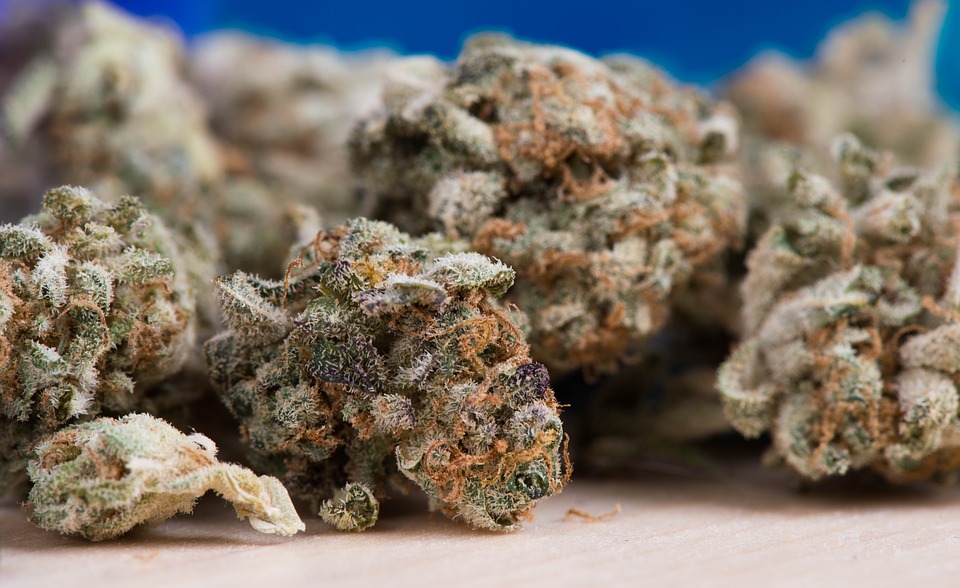
Using a 2015 national survey, the National Institute on Drug Abuse determined that marijuana is the most frequently used illicit drug. However, recent changes in public opinion and state laws have begun to call marijuana’s illicit status into question.
According to the Pew Research Center, “About six-in-ten Americans (62%) say the use of marijuana should be legalized, reflecting a steady increase over the past decade.”
This data represents a remarkable degree of social progression, as the number in favor of legalization was just half that in 2000. The result has been rapid changes in marijuana laws across the country, and Missouri is no exception.
During the 2018 midterm elections, Missouri residents also voted on three ballot initiatives addressing medical marijuana. Amendment 2 passed with 65.5 percent of the vote, altering the constitution to permit patients with a number of conditions to safely and legally access medical cannabis with approval from a licensed physician.
“Under the new law, qualified patients who have approval from their physicians will receive identification cards from the state that will allow them and their registered caregivers to grow up to six marijuana plants and purchase at least four ounces of cannabis from dispensaries on a monthly basis,” reported Forbes.
To create a regulated supply, the state will also issue licenses for marijuana cultivation, dispensaries and infused products. A four percent tax on marijuana sales will be used to provide services for military veterans.
“The Department will begin accepting applications for cultivation, manufacturing, and dispensing facilities on Aug. 3, 2019 and we anticipate medical marijuana may be available for purchase as early as January 2020,” according to the Missouri Department of Health and Senior Services.
Despite these changes to the legality of medicinal marijuana, Missouri has yet to fully address decriminalization, the status of CBD and recreational use.
There is an often misunderstood difference between decriminalization and legalization.
“Decriminalisation does not mean that people can use drugs with impunity,” according to the Economist. “Instead it means that possessing small amounts no longer lands the perpetrator with a criminal record or jail sentence.”
Legislation passed in 2014 partially decriminalized marijuana possession in Missouri, but possession of amounts more than 10 grams may still incur jail time. As of April this year, further decriminalization is being debated in the Missouri House of Representatives.
“The bill would reduce the punishment for possessing less than 100 grams of marijuana to an infraction,” as reported by KRCU.
Ten states and the District of Columbia have fully legalized marijuana, meaning consumers are free to possess the drug without risking fines or jail time. Full legalization also means licensed businesses can grow and sell marijuana for recreational use without punishment.
Missouri has not yet fully legalized marijuana or the use of CBD products outside of treatment for seizures, but the product is commercially available in neighboring Kansas. Despite the legality of CBD, recreational marijuana remains illegal in Kansas. Possession of the drug is considered a misdemeanor punishable by up to six months of incarceration for the first offense.
Cannabidiol (CBD) is a non-addictive compound derived from the cannabis flower that, unlike THC, can be used therapeutically without causing marijuana’s historically beloved high.
KC Hemp Co is a family-owned business that sells CBD products in the Overland Park area. The local store owners claim CBD may help treat anxiety, depression, mood and poor sleep, as well as physical problems like pain and inflammation. Their company has recently garnered social acceptance in a community where its products may have been unwelcome as little as a year ago.
“Thankfully… communities like Overland Park and the organizations within them are opening their minds, [the owners] added, noting that KC Hemp Co. was named Downtown Overland Park’s best new business of 2018,” as stated in Startland News.
Another portion of the debate around legalizing medical marijuana stems from a lack of research. Doctors and patients remain in the dark about how marijuana could be used to treat different conditions or replace other medications.
“Because the federal government considers marijuana a Schedule 1 drug, research on marijuana or its active ingredients is highly restricted and even discouraged in some cases,” according to NPR article.
The University of Mississippi is the only government contractor permitted to grow marijuana for federal government funded research, and their plants have proven insufficient for scientists’ desired breadth of study.
“Last year, the Drug Enforcement Administration had been gearing up to allow facilities other than the University of Mississippi to grow pot for research,” NPR reported. “But after the DEA received 26 applications from other growers, U.S. Attorney General Jeff Sessions halted the initiative.”
